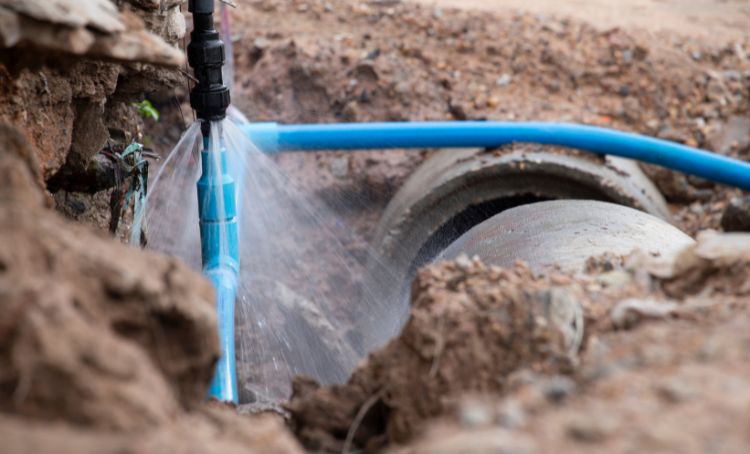

House Flipping: 7 crucial things to consider before your first project

House flipping, the art of buying, renovating, and selling properties for profit, has captured the imagination of many private investors.
While the potential rewards of an investment property can be substantial, it’s essential to approach this venture with a clear-eyed understanding of the challenges involved.
In this article, we delve into 7 of the most critical factors you need to consider before diving into the world of house flipping.
How does flipping houses work?

On the surface, house flipping is essentially buying a property, renovating it, and then selling it for a profit. The goal is to purchase a property at a price below its market value, invest in improvements to increase its worth, and then sell it quickly for a higher price.
There are a few factors to the secret to successful flips. You need a keen eye for identifying properties with potential, solid project management skills, and a good understanding of the real estate market. While it can be lucrative, it also involves risks that can catch the unninitiated off guard.
Whether a flip is successful or not can depend on a range of factors. Things like the property’s location, the extent of renovations needed, and the speed at which the property can be sold. Strong market knowledge, financial planning, and a reliable team of professionals are crucial for maximizing profits and minimizing risks in this investment strategy.
But this is just the tip of the flipping iceberg. Let’s dive deeper into the things that can make or break a fix and flip real estate investment.
1. Ensure you have enough capital

It sounds like an obvious one, but something that is often overlooked. Real estate investing can be a profitable venture, but it requires substantial capital upfront. Many first-time flippers underestimate just how much money is needed to succeed. So, before you jump in headfirst, take a moment to evaluate your financial readiness.
Consider factors such as the purchase price, renovation costs, any holding expenses, and interest rates from any fix and flip financing options.
You will need to carefully assess how much you can afford to invest in a property without jeopardizing your financial stability.
A great place to start is checking if you’re eligible for a loan. Reputable lenders, like Express Capital Financing offer a fix-and-flip calculator that takes into consideration many of the elements you need to consider beforeinvesting in a fix-and-flip project.
You can use this free tool to put your house-flip finances into perspective. In just a few clicks, you can ascertain the amount of financing required to make your next fix and flip project a huge success. Take advantage of this invaluable resource to make well-informed investment decisions and set yourself up for success.
2. Do your market research

So once you’ve established you have the appropriate capital, it’s time to start looking into the best places to invest in a fix and flip property.
Getting to grips with the local real estate market is essential. A property that looks like it has potential, but is in an area where people simply aren’t buying isn’t going to turn a profit.
Identify up-and-coming neighborhoods with potential for property value appreciation. Some key factors to consider here are crime rates, school districts, and proximity to amenities. These are just a few aspects that feed into the overall value and ‘sellability’ of a property. And you always should have a contingency plan.
A solid option if you struggle to sell is to hold it as a rental property. With this in mind, make sure to research rental rates and occupancy trends in the area. Stay informed about local economic conditions, job growth, and population trends to gauge market stability.
Once you have a handle on the local housing market, it’s time to find a real estate investment property that will be profitable.
3. Find the right property

Identifying profitable properties isn’t always easy, but there are a few strategies to find potential deals. Carefully assess the potential properties to ensure your final sale price will increase the value of your fix and flip property.
Here are some effective ways to discover the perfect property:
Direct Mail
Reach out to homeowners in distressed neighborhoods with offers to buy their properties.
Property Auctions
Attend auctions to find properties at below-market prices.
Networking
Build relationships with real estate agents, contractors, and other real estate investors to access exclusive off-market deals.
Monitor Online Listings
Keep a close eye on online platforms to spot properties with potential for investment.
4. Decide who’s going to be doing the work

Renovations are the heart of house flipping, and having the necessary skills or a reliable contractor is crucial. More often than not it’s going to require more than just a coat of paint.
While, in theory, it is cheaper to do some or all of the renovation work yourself, take an objective look at your renovation skills and time availability. If you lack expertise, the chances are you’re going to end up with more unexpected costs when things don’t go entirely to plan.
It’s always worth considering hiring a general contractor and other real estate professionals to ensure the work is to standard and you don’t have to manage expensive workarounds.
5. House Flipping Time Commitments

House flipping is a time-consuming venture that requires dedication and organization. First time flippers often grossly underestimate how much time is really going to be needed. Even if you’re not doing the work yourself, you must plan for the time required to find the right property and then the time to renovate it.
Beyond that, undergoing essential inspections and navigating the sales process also consume a significant amount of time. To streamline these processes, consider enlisting the expertise of contractors and real estate agents.
But this is a double-edged sword, as these costs will eat into your profit.
6. Legal and Regulatory Considerations

Understanding the legal and regulatory framework is essential to protect your investment and avoid costly mistakes. If you don’t have the legal knowledge, we strongly recommend finding good real estate experts to help.
The legal and regulatory landscape is a quagmire and it can be overwhelming and the risk of getting it wrong can be ruinous. A good lawyer can support you with the correct contracts for property purchases, renovations, and sales transactions. A legal expert can also offer guidance on securing title insurance and ensuring compliance with local zoning laws, building codes, and environmental regulations.
It’s always advisable to consult with a tax professional to help you navigate the property tax implications related to house flipping, including the intricacies of capital gains taxes.
By taking these steps, you can make sure that your house-flipping venture is built on a solid legal and regulatory foundation to minimize potential risks and maximize the likelihood of success.
7. Prepare for Unexpected Challenges

House flipping is rarely without its challenges. Be prepared to encounter obstacles and develop strategies to overcome them. The first step to getting on top is to thoroughly inspect the property before committing to purchase it.
You can do this yourself, but it’s often worthwhile getting a good property inspector on your side. They have the expertise to conduct thorough inspections and uncover potential issues to prevent you from getting in a tough spot.
Always allow for things to take longer than you plan. Allocating a contingency fund to cover unexpected expenses and monitoring costs closely will prevent you from getting into financial trouble here.
The market can change quickly too, so stay informed about the local and national market trends and be prepared to adjust your strategies accordingly.
By carefully considering these factors and addressing potential challenges, you can increase your chances of success in the competitive world of house flipping. Remember, thorough planning, market knowledge, and financial discipline are essential for achieving your investment goals.
Fix-and-flip investing requires flexible short-term loan options and a trusted lender with adequate experience in this niche area of the market. At Express Capital Financing, we provide investors like you with flexible funding options designed to bring your investment dreams to life.
. With a focus on easing the financing process for real estate projects, we offer fast and reliable funding, dedicated expert support, and competitive terms. Explore our Fix and Flip Loan options or any of our flexible loan programs, or get in touch today to learn more about how we can help you reach your investing goals.



Comments